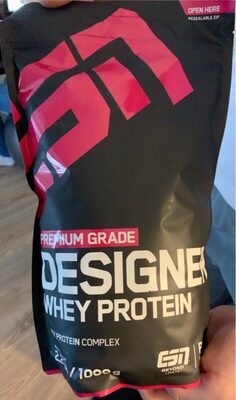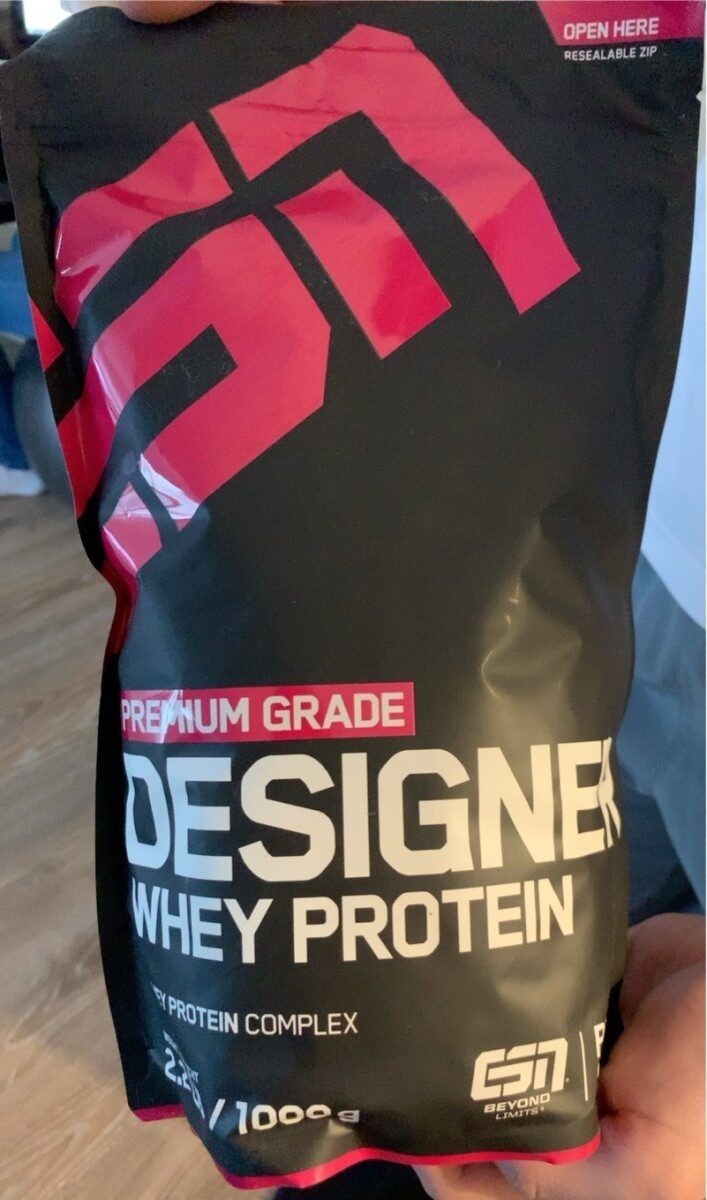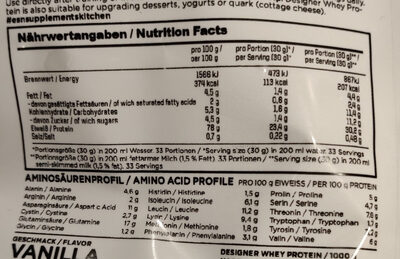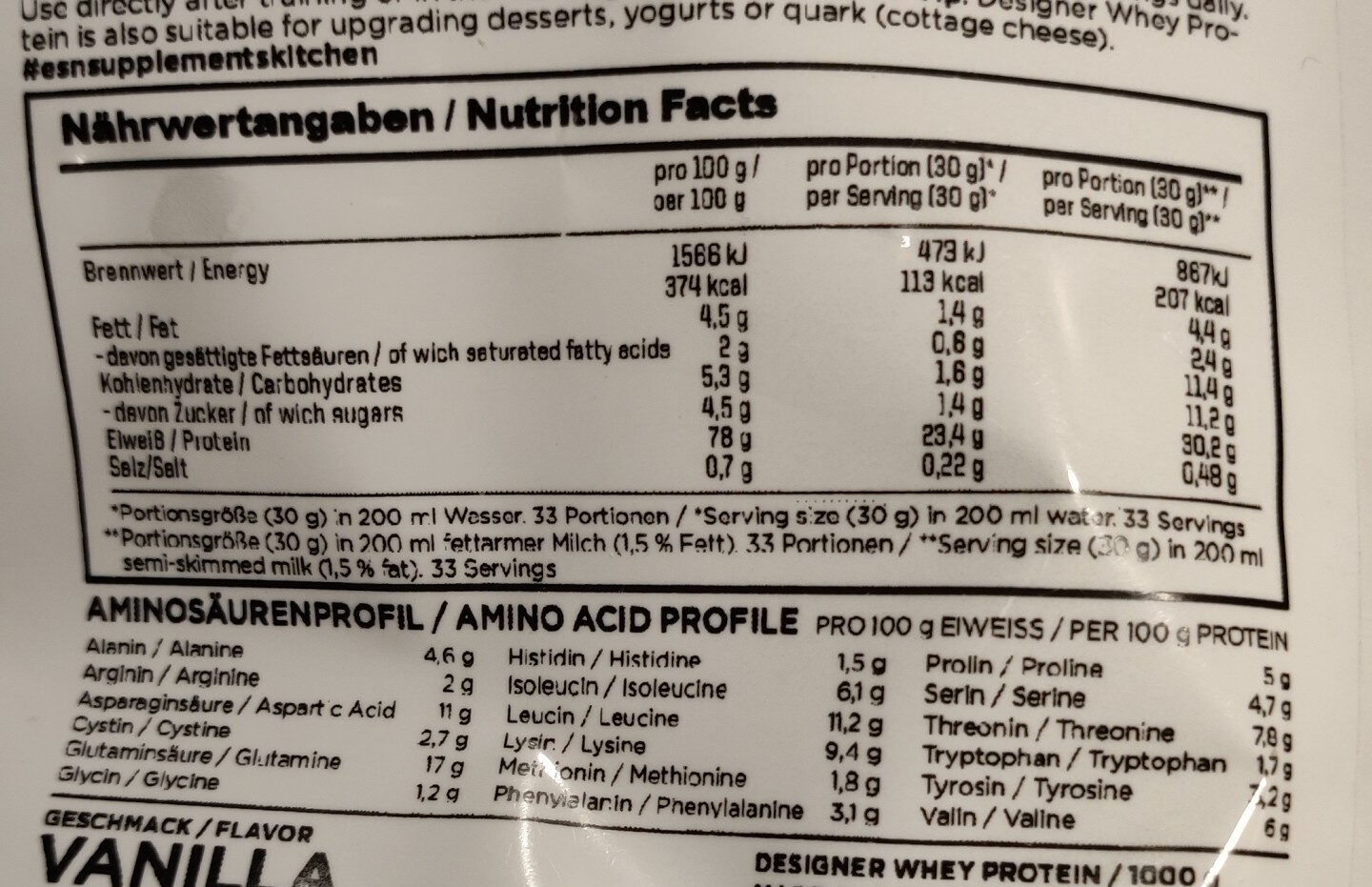ESN Designer Whey Protein - 1000 g
This product page is not complete. You can help to complete it by editing it and adding more data from the photos we have, or by taking more photos using the app for Android or iPhone/iPad. Thank you!
×
Barcode: 4250519600079 (EAN / EAN-13)
Quantity: 1000 g
Packaging: de:Folienbeutel
Brands: ESN, FITMART GMBH & CO KG
Categories: Dietary supplements, Bodybuilding supplements, Protein powders
Labels, certifications, awards: de:Kölner Liste
Manufacturing or processing places: Rellingen
Countries where sold: Germany
Matching with your preferences
Environment
Packaging
Transportation
Report a problem
Data sources
Product added on by pho3nixx
Last edit of product page on by ecoscore-impact-estimator.
Product page also edited by defmeggi, kiliweb, openfoodfacts-contributors, tenlight, thors-zimmermann, yuka.sY2b0xO6T85zoF3NwEKvlmoXQoXv8wjWEQ7Qn2-6l-mXFoTWcP9NvaroKqg.











